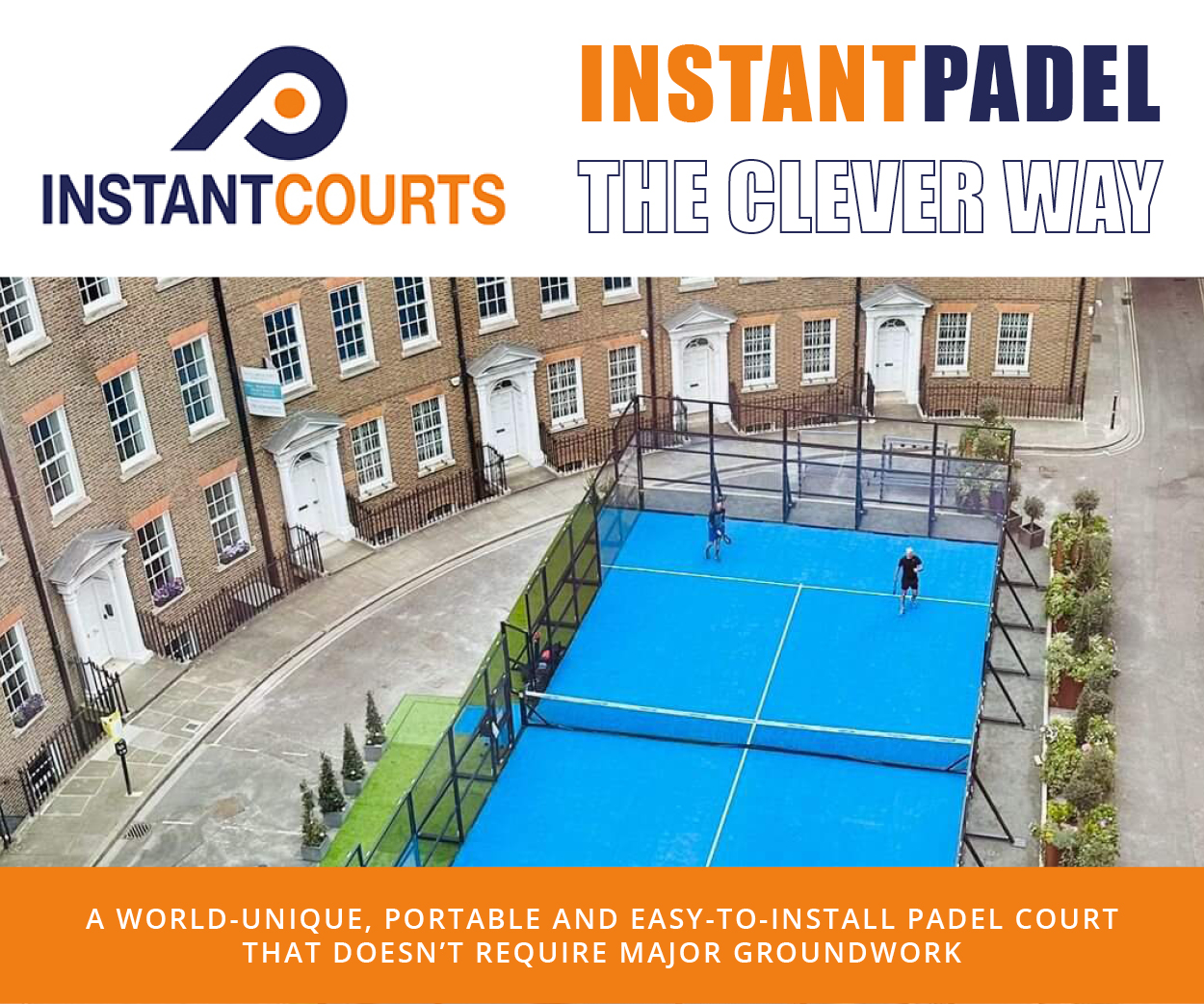Young entrepreneur Dylan Shawyer is replanting Sweden’s excess padel infrastructure to grow the sport in the UK and other emerging markets.
Dylan’s company, Padel Tree, is only 15 months old, but his quick thinking and shrewd manouevering has already seen him successfully re-purpose hundreds of courts that were left unused since Sweden’s sudden over-saturation in the immediate aftermath of the pandemic.
Having begun his venture by spotting over-supply in the Swedish market and leveraging it to meet high demand elsewhere, the 29-year-old is now expanding his remit beyond merely re-purposing to selling new courts and building his own clubs.
“It’s all happened very fast,” Dylan tells The Padel Paper. “I’ve achieved so much in a short amount of time and every experience has sharpened my problem-solving ability.
“Padel Tree now has 14 staff and three full-time teams working in many different countries. I’ve built up a lot of trust and good relationships. We’re now at the stage of branching out beyond second-hand courts and opening up new avenues.”
Dylan is half French, half English and grew up in Egypt and Spain. He used to work as a land buyer for a London property development company. He first dipped his toe into the padel industry, deconstructing, reselling and rebuilding his first courts in April 2024.

He explains: “I spotted a post on LinkedIn offering six second-hand courts for sale and I thought, ‘How is it possible for there to be a secondary market for a product that’s so hot?'”
The courts were in Gothenberg, victims of the explosion of the Swedish padel bubble, in which 8000 courts flew up rapidly during and immediately after the pandemic. The boom was fuelled by venture capitalists, but the community and development work wasn’t being done to fill them sustainably.
“They were empty and they couldn’t get rid of them,” recalls Dylan. “I posted some pictures online and got 75 responses from all over, including France. I hired a Spanish team and we turned up in trucks in the snow in the middle of nowhere. We were running round this little town buying things we needed. It was wild, but it went pretty well.
“I had to convince every single customer to go with me. I had no references. It was pretty crazy. Trying to control stock, drivers, timings, everything arriving seamlessly and on time…it was a huge learning curve.”
His model is certainly not a case of exploiting Sweden’s misfortune; many operators are glad to get money for the courts, especially as domestic labour costs to deconstruct them are so high. “I have great relationships with them,” says Dylan.

A side hustle soon turned into a fully blown business and Padel Tree was born, with courts sold in the Netherlands, Belgium, France, Switzerland, the UK and more. Dylan hired his own teams, and started to navigate the hazards of logistics, exporting, importing, sales, admin and construction.
“I’ve been flexible with the terms of business; for example, allowing operators to pay me in instalments,” he says. “Because the product is cheaper and I have an import and installation team, I have made padel possible for a lot of smaller suburban and rural tennis clubs and smaller-scale businesses.”
Aware that Sweden’s excess infrastructure is an ever-dwindling resource, Dylan now wants to disassociate somewhat from his Swedish re-purposing model. “New courts are so much easier!” laughs Dylan. “Everything comes at once and it’s all packaged properly.
“Suppliers want to work with me because I do such volume and have my own teams. Companies want to sell as many courts as possible, but if they sell 1000 courts they have to ship and build 1000 courts – and getting them there and building them are the hard parts.
“I’ve done the hard yards of dealing with having trucks stuck at customs, delays, complications, language barriers… The projection for me now is doing it efficiently at scale.”
Padel Tree is also set to be a padel club operator, which projects in the pipeline in Finchley, Henley Wood, Bushey, Hertford and Surbiton, plus Germany, Holland and the UAE. “A lot going on and it’s happened very fast,” the founder states.
“Across all facets of the business, I’m in a good position to help lots of people in the UK get padel going. I’ve done lots of learning and lots of delivering results. The future is incredibly exciting.”






































